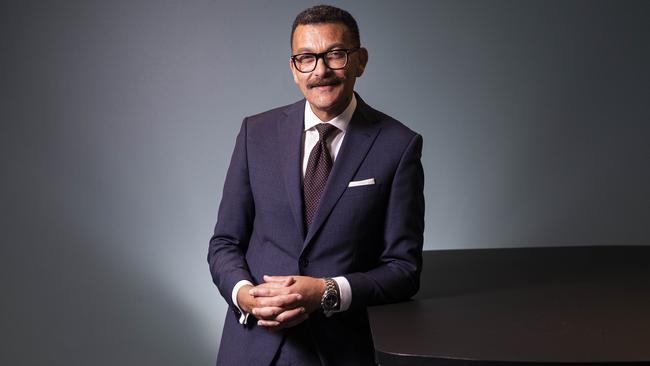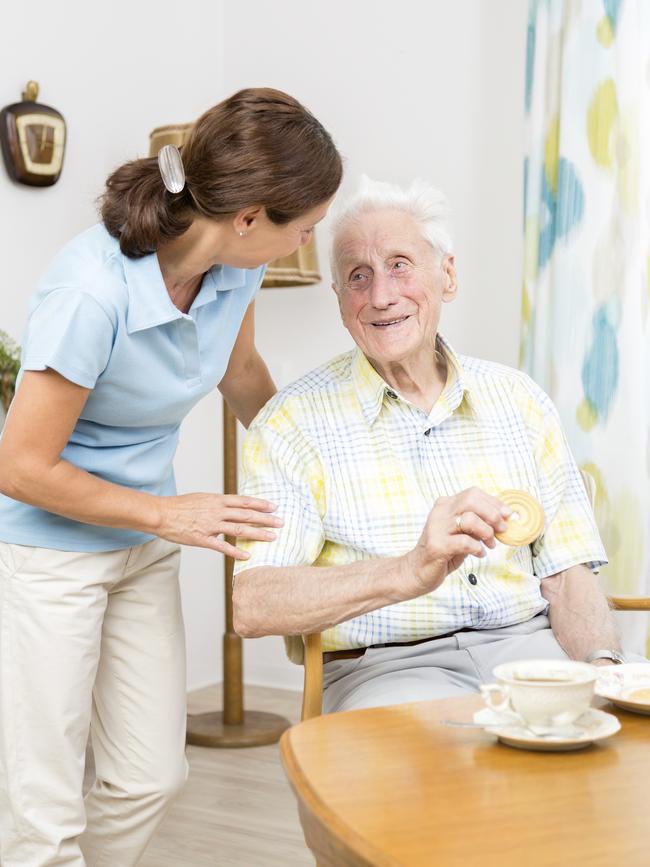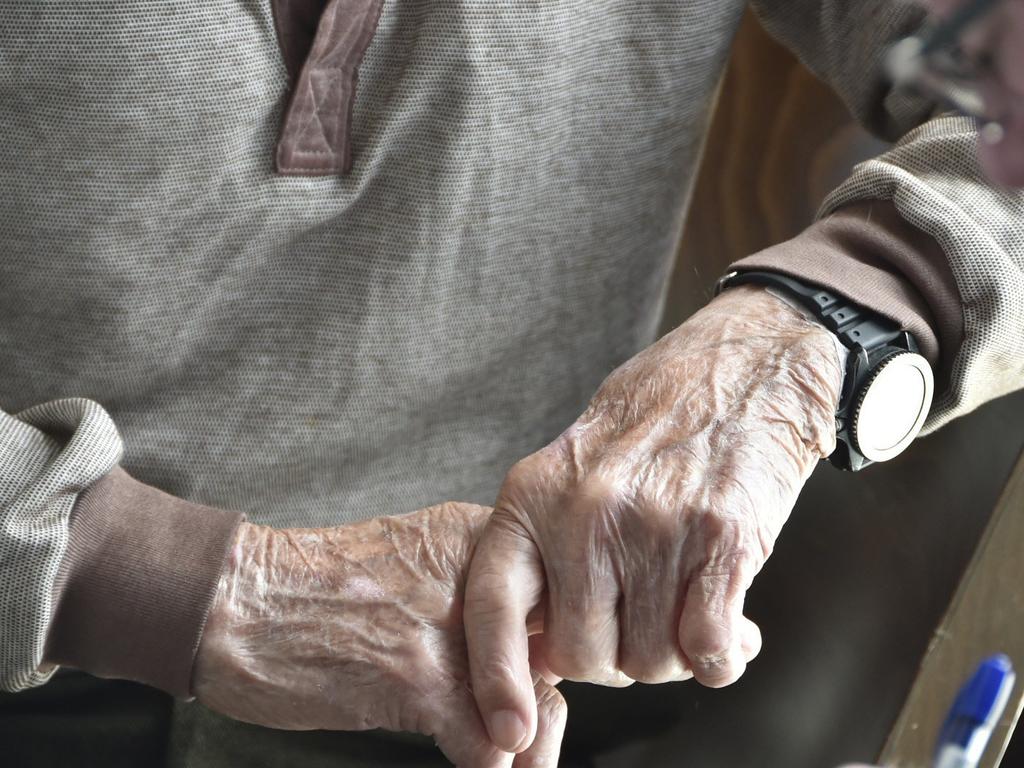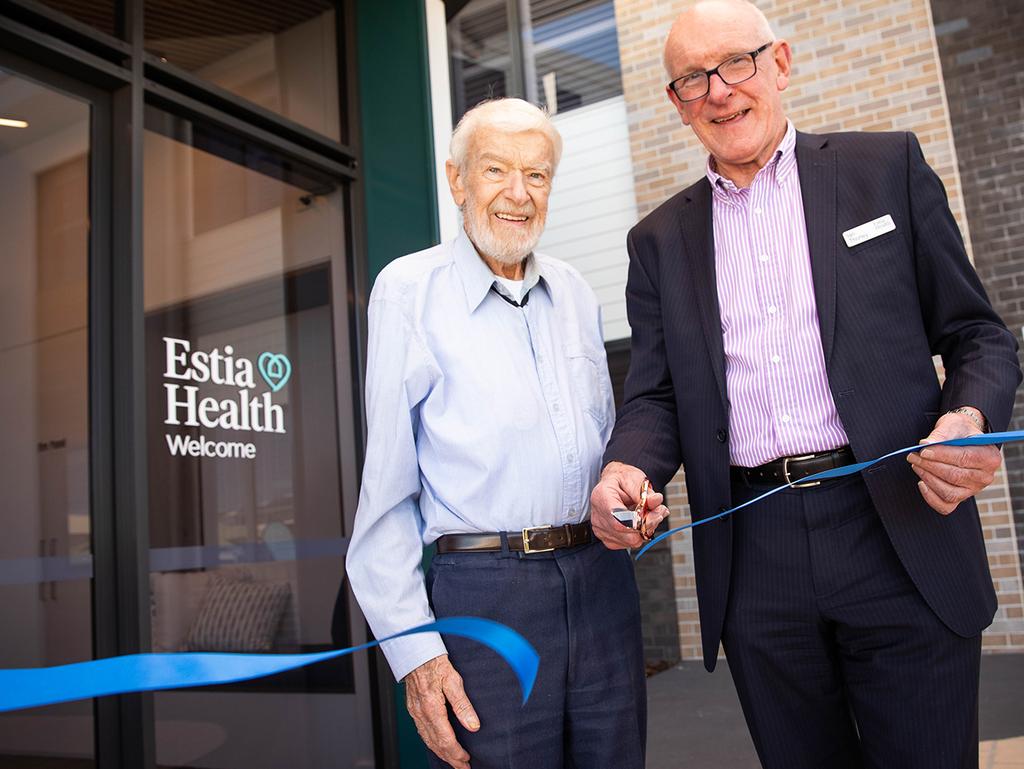Hisham El’Ansary says Bupa has learned from aged care royal commission
Bupa’s ANZ boss Hisham El’Ansary reveals how the lessons learnt in aged care royal commission helped the company navigate the COVID-19 crisis.

Bupa’s Australia and New Zealand chief executive Hisham El’Ansary loves numbers. Before taking the top job he had been chief financial officer at the health insurance giant, as well as at Myer and a suite of other companies.
While he can recite figures easily, when he was appointed Bupa’s chief executive in April last year he faced a momentous challenge, which would define his leadership style and show he can navigate more than a balance sheet.
Bupa’s aged care division — once one of the best in its sector — had “lost its way”, as El’Ansary says, with stories of abuse and neglect emerging one after the other during the aged care royal commission.
Bupa is a $9bn business, with aged care and its health delivery services, which include dental clinics, optometrists and medical centres, accounting for $2bn. Health insurance is the main game, generating around $6.8bn.
But it was the aged care division that commanded most of El’Ansary’s attention when he assumed the top job.
When asked why Bupa did not seek to divest its nursing homes — about 20 per cent of which were under sanction, meaning they could not accept new residents, among other conditions — he says without hesitation that he “didn’t want to cut and run”.
Caring for the elderly is also enshrined in Bupa’s articles of association and was a key plank in the group’s purpose when it was formed in post-war Britain after individual communities pooled their diminished resources to “prevent, relieve and cure sickness and ill-health of every kind”.
“I wanted to do the hard yards,” El’Ansary says, revealing that the nursing home division lost about $72m last year and is set for another big loss this year.
He joined Bupa in 2008 as CFO and played a key role in the integration of health insurer MBF, which Bupa acquired for $2.4bn in 2009. He later became managing director of the health services business, which provides Bupa’s dental, optical, health coaching and medical assessment services to more than 1.5 million Australian and New Zealanders across 270 sites.
By the time he became CEO the care of more 6700 elderly residents was included in his remit in a division where Bupa’s reputation was sinking by the day.
“We had been the market leader but somewhere along the way we lost our way. One of our key priorities was to get the business back on track and restore our credibility and reputation.
“We went through everything, hiring a new executive managing director, new executive team. We went through each part of the business step by step to work out what went wrong.
“We had lost some of that discipline that is a key feature to running any clinical business. At the end of the day it is about changing the culture and that takes time.”
That lack of discipline was on full display during the aged care royal commission, with one submission revealing an employee of Bupa South Hobart charged more than $500 in flights to the credit cards of two of the home’s residents.

The commission heard another resident in Bupa Willoughby became malnourished during her four-week stay after a lack of supervision and later died. The resident’s reliance on hearing aids and glasses were not recorded in her interim care plan, with the royal commission told the hearing aids were frequently lost and when they were found, they “often had flat batteries or simply were not placed” in the resident’s ears.
Speaking more broadly, El’Ansary says consumer and resident complaints must become a source of learning.
“Consumer complaints need to be seen as an opportunity to improve and not be dismissed. They are rich information for your business on where you can plan to improve.”
Bupa has since invested “tens of millions dollars” into the business. Initiatives include stronger clinical oversight, improved staff training, enhanced internal auditing, implementing a new management structure and improving the quality of food.
The business is starting to turn around. On a visit to one of Bupa’s 72 aged care homes in the Geelong suburb of Belmont, southwest of Melbourne, El’Ansary reported the home had achieved 100 per cent occupancy and had kept COVID-19 out.
Although it’s one home, it is a significant feat, considering the occupancy rates in residential care facilities have steadily declined in recent years, falling from 91.8 per cent in 2016-17 to 89.4 per cent in 2018-19.
While the tide is turning, El’Ansary is reluctant to rate the performance of Bupa’s aged care division. “I’m loathe to become cocky because it only takes one incident for you to take your eye off the ball,” he says.
And the COVID-19 pandemic has forced aged care administrators to become more vigilant than ever to protect one of the most vulnerable groups in the community. Across Australia, the virus has killed 685 aged care residents, 655 of whom were in Victoria. Across Bupa’s 72 homes, it recorded 22 deaths.
El’Ansary says the company has spent about $15m on personal protective equipment and introduced strict visitation restrictions before official measures were enforced in an effort to limit exposure to COVID.
The pandemic will lead to Bupa again reporting a significant loss in its aged care division this year and El’Ansary says one of the benefits of being in a large organisation is it can cross-subsidise its poorer performing operations.
But that is not sustainable in the long term and the aged care division will need to start heading back towards profitability.
He hopes the royal commission will deliver reforms.
Currently aged care charges are capped at $28,087.41 per year or $67,409.85 in a lifetime. El’Ansary believes if a wealthier resident can fund a greater share of their care, they should be able to.







To join the conversation, please log in. Don't have an account? Register
Join the conversation, you are commenting as Logout